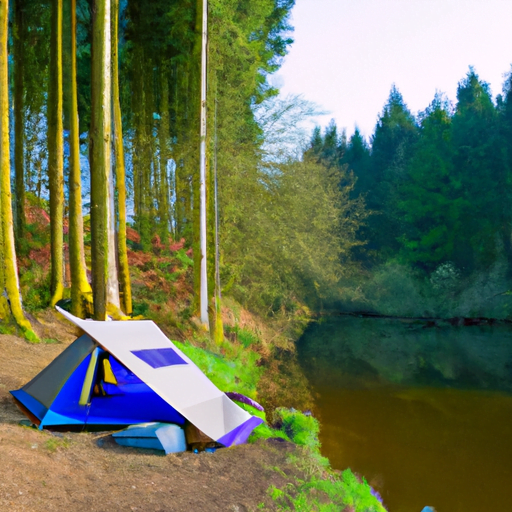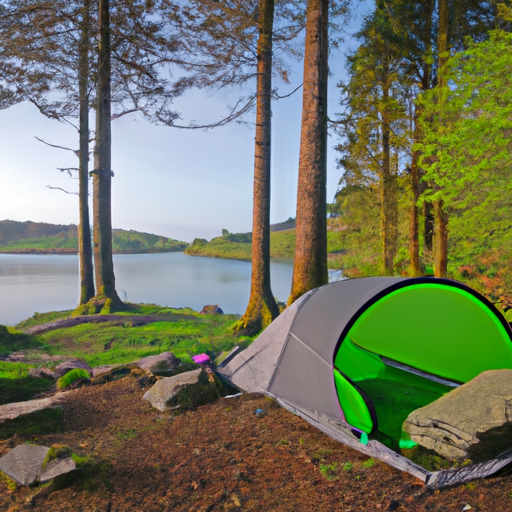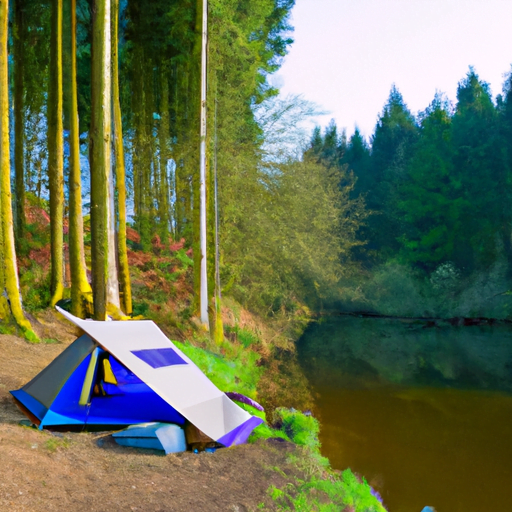Are you someone who loves the great outdoors and dreams of escaping the hustle and bustle of daily life? Have you ever wondered about the legalities of wild camping in the UK? Well, you’re in luck! In this article, we’re going to delve into the topic and explore everything you need to know about wild camping in the UK.
Wild camping, also known as free camping or wild pitching, refers to the act of setting up camp in the wilderness, away from designated campsites or private land. It’s a chance to immerse yourself in nature and enjoy the tranquility and beauty of remote locations. However, before you start packing your tent, it’s crucial to understand the legalities and potential consequences of wild camping.
In the UK, the legality of wild camping varies across different regions. While Scotland has more relaxed laws and allows wild camping in most areas, England and Wales have stricter regulations. Generally, wild camping is illegal without permission from the landowner, as most areas are privately owned. However, there are exceptions to the rule, such as camping on open access land or in some national parks. To avoid legal issues and enjoy your outdoor adventures responsibly, it’s essential to research the specific rules and obtain necessary permissions before pitching your tent. In the upcoming sections, we’ll delve deeper into the legal aspects of wild camping in different parts of the UK, so you’ll be well-prepared for your next outdoor excursion.

Understanding the Legalities of Wild Camping in the UK
When you think of camping, you might picture setting up your tent amidst beautiful surroundings, far away from the hustle and bustle of city life. This form of camping, known as wild camping, has gained popularity in recent years, as it allows individuals to truly connect with nature. However, before you embark on your wild camping adventure in the UK, it is vital to understand the legalities surrounding this activity. In this article, we will explore the definition of wild camping, the rights of landowners, access rights in Scotland, designated camping sites, where wild camping is allowed, obtaining permission, legal consequences of illegal camping, environmental considerations, safety precautions, and finally, we will conclude with key takeaways.
The Definition of Wild Camping
Wild camping refers to setting up a temporary shelter, such as a tent or a bivvy bag, in the wilderness or countryside. Unlike traditional camping in designated campsites, wild camping allows you to immerse yourself in the natural environment without the restrictions of established camping areas. While it can be an incredible experience, there are legal aspects that need to be considered, especially in the UK, where regulations vary depending on which country you are in.
The Rights of Landowners
In England and Wales, wild camping is generally not legal due to trespassing laws. In order to camp on private land, you must obtain written permission from the landowner. In some cases, landowners may grant permission if you respect the environment and leave no trace of your presence. It is always advisable to seek permission beforehand to avoid any potential legal issues.
Access Rights in Scotland and the Countryside Code
In Scotland, wild camping is slightly more lenient. The Land Reform (Scotland) Act 2003 allows individuals to camp on most unenclosed land, as long as it is done responsibly. This means leaving no trace, avoiding areas with crops or livestock, and camping in small groups. It is important to note that this right applies to non-motorized camping only.
The Countryside Code also provides guidelines for campers across the UK. It emphasizes the importance of leaving no trace, respecting wildlife and livestock, and being considerate of others. While the Code is not legally binding, it is good practice to adhere to its principles.
Designated Camping Sites
If you prefer a more organized camping experience, there are designated campsites available throughout the UK. These sites provide facilities such as toilets, showers, and sometimes even electricity hook-ups. They offer a safer and more regulated environment for campers, with clearly defined boundaries and rules. Planning your camping trip in advance and booking a designated campsite can provide peace of mind and ensure a hassle-free experience.
Where Wild Camping is Allowed
In addition to Scotland’s more lenient wild camping laws, there are certain areas in England and Wales where wild camping is permitted. National Parks, such as the Lake District, Snowdonia, and Dartmoor, often allow wild camping, but it is important to check with the specific park’s guidelines before pitching your tent. It is worth noting that while wild camping may be allowed in some areas, there are often restrictions on camping during certain seasons or in sensitive locations, so it is crucial to be aware of any local bylaws or regulations.
Obtaining Permission for Wild Camping
If you wish to camp on private land in England and Wales, it is essential to obtain permission from the landowner. One way to do this is by reaching out directly and explaining your intentions, ensuring that you respect their property and the natural environment. In some cases, landowners may allow wild camping for a fee or request that you camp in designated areas on their land. By seeking permission, you can enjoy your camping experience without any legal consequences.
Legal Consequences of Illegal Camping
Engaging in wild camping without proper permission or in restricted areas can lead to legal consequences. In England and Wales, since wild camping is generally not permitted, you may be asked to leave the land by the landowner or face potential legal action for trespassing. Penalties for trespassing can include fines or even imprisonment in extreme cases. It is essential to be aware of the laws and regulations in the area you intend to camp to avoid any legal trouble.
Environmental Considerations
When participating in wild camping, it is important to be environmentally conscious. Leave no trace of your presence, dispose of waste properly, and avoid damaging the natural habitat. Respecting wildlife, vegetation, and water sources is crucial for preserving the beauty of the countryside and ensuring that future generations can continue to enjoy the wilderness.
Safety Precautions for Wild Camping
While it is exciting to venture into the great outdoors and embrace the freedom of wild camping, it is essential to prioritize safety. Before you embark on your trip, ensure that you have adequate equipment, such as a sturdy tent, appropriate clothing, and enough food and water. Research the specific area where you plan to camp, familiarize yourself with any potential hazards, and let someone know your intended route and expected return time. By taking these precautions, you can minimize risks and fully enjoy your wild camping experience.
Conclusion
In conclusion, understanding the legalities of wild camping in the UK is crucial before embarking on your adventure. From obtaining permission to respecting landowners’ rights to ensuring environmental conservation, it is vital to adhere to the laws and guidelines in place. By doing so, you can have a safe, memorable, and responsible wild camping experience, immersing yourself in the natural beauty that the UK has to offer.





